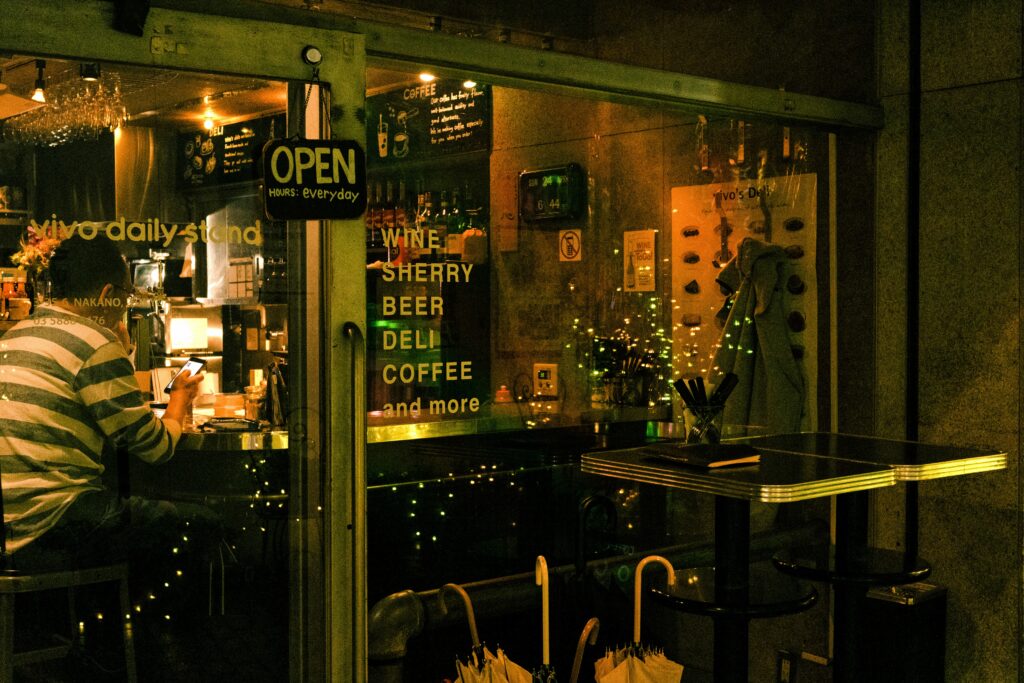⚠️Visitors to our site are often searching for information because they, their friend, or a family member has unfortunately fallen into use of dangerous substances. If you or a loved one is struggling, please call us for help, we can verify if your insurance qualifies for medically assisted care.⚠️
Don’t hesitate to call our admissions department at (855) 855-9593 or click the button below to get substance abuse help for yourself or a loved one.
We can help end your battle with alcohol addiction for good,
Call us now to get immediate assistance and take the first step toward a healthier you.
Introduction

Ninety days of sobriety feels like a victory—until it doesn’t. Your mornings are clearer, your relationships are mending, and that constant internal noise has finally quieted to a manageable hum. Then, without warning, you’re standing in your kitchen staring at an empty wine glass, wondering how those lost minutes slipped through your fingers like sand. What happened wasn’t random. It wasn’t weakness, and it certainly wasn’t failure. It was a trigger—that invisible tripwire woven into the fabric of your daily life, waiting to catch you off guard.
At Golden Road Recovery, we understand that the path to lasting sobriety isn’t just about putting down the bottle—it’s about understanding the intricate web of alcohol triggers that can unravel months, even years, of progress in mere moments. Whether you’re contemplating treatment for the first time or you’ve been down this road before, identifying your personal triggers is the foundation upon which lasting recovery is built. Here’s the truth: once you understand your triggers, you reclaim power over them.
What Is a Trigger in Addiction?
Before we dive into our comprehensive list of triggers, let’s establish what we’re actually talking about. According to the National Institute on Alcohol Abuse and Alcoholism, triggers are external events or internal feelings that create psychological and physiological cues associated with alcohol use [1]. They’re the invisible architects of relapse, building bridges between your present and your past drinking behaviors without your conscious permission.
Think of addiction triggers as your brain’s misguided attempt at pattern recognition. Your neural pathways, carved deep by repeated alcohol use, remember that wine numbed that specific type of pain, or that vodka silenced that particular voice of criticism. The Mayo Clinic identifies these patterns as conditioned responses—your brain essentially running old software on new hardware [2].
We can help end your battle with alcohol addiction for good,
Call us now to get immediate assistance and take the first step toward a healthier you.
The 10 Most Common Alcoholic Triggers
1. Emotional Turbulence: The HALT Principle
Let’s start with the foundation—what recovery circles call HALT triggers: Hungry, Angry, Lonely, Tired. These aren’t just buzzwords; they’re the emotional quartet that orchestrates most relapses. When you’re depleting your physical or emotional reserves, your brain desperately seeks its old coping mechanism.
These emotional states lower your defenses. Hunger drops your blood sugar and spikes irritability, making every frustration feel magnified. Anger pushes rational decision-making aside, letting impulse take the wheel. Loneliness makes that bottle feel like the only companion who truly understands. Exhaustion evaporates your willpower entirely, leaving you vulnerable to old patterns. Understanding these nuances isn’t just helpful; it’s essential for sustained recovery.
2. The Geography of Memory: Places
Certain locations become soaked in association. That corner bar where you spent countless evenings. The liquor store you passed daily. Even your own kitchen, where you’d pour that first evening drink. According to research published in the Journal of Substance Abuse Treatment, environmental cues can trigger cravings even years into recovery [4].

3. The Company You Keep: People
We become the average of the five people we spend the most time with—a truth that cuts both ways in recovery. Old drinking buddies, enablers, or even well-meaning friends who don’t understand your journey can become powerful triggers for drinking. The Substance Abuse and Mental Health Services Administration emphasizes that changing social circles is often necessary for sustained recovery [6].
We can help end your battle with alcohol addiction for good,
Call us now to get immediate assistance and take the first step toward a healthier you.
4. The Calendar’s Cruel Reminders: Dates and Anniversaries
Anniversaries of loss, holidays that once revolved around alcohol, even positive milestones can trigger drinking. The anniversary of a loved one’s death, the date of a divorce, your drinking “rock bottom” anniversary—these dates carry emotional weight that can pull you back toward old patterns. Even joyful occasions like birthdays or New Year’s Eve, traditionally celebrated with champagne toasts, can become minefields in early recovery.
5. Stress: The Universal Accelerant
The Centers for Disease Control and Prevention identifies chronic stress as a primary risk factor for alcohol relapse [5]. But stress isn’t monolithic. It’s the mounting bills, the difficult conversation you’re avoiding, the promotion that terrifies you as much as it excites you. It’s all the pressure points where life demands more than you think you can give without liquid courage.
| Type of Stress | Common Manifestation | Alternative Coping Strategy |
| Financial | Bill anxiety, debt pressure | Budget counseling, financial planning |
| Relational | Arguments, loneliness | Therapy, support groups |
| Professional | Job demands, unemployment | Career counseling, skills training |
| Trauma-related | PTSD symptoms, flashbacks | Specialized trauma therapy, EMDR |
6. Success and Celebration: The Unexpected Betrayal
Here’s a paradox: positive events can be just as triggering as negative ones. That promotion, that first date in sobriety, that clean bill of health, even celebrating a sobriety milestone—these victories can trigger the impulse to “celebrate” with a drink. Your brain remembers when alcohol was part of every celebration, and it mistakes correlation for necessity.
We can help end your battle with alcohol addiction for good,
Call us now to get immediate assistance and take the first step toward a healthier you.
7. The Sensory Ambush: Smells and Sounds
The scent of whiskey, the sound of ice clinking in a glass, even certain songs that played during your drinking days—these sensory triggers bypass rational thought entirely, hitting your limbic system like a freight train. This is your brain’s associative memory working overtime, and it’s remarkably powerful.

8. Physical Pain: When the Body Cries Out
Chronic pain creates a desperate search for relief, and alcohol once provided that numbing escape. The Australian Drug Foundation notes that untreated physical pain is a significant relapse trigger, particularly when combined with inadequate pain management alternatives [3]. At Golden Road Recovery, we work with medical professionals to ensure pain is addressed without compromising sobriety.
9. Boredom: The Void That Demands Filling
Idle time can be dangerous territory in early recovery. Without the ritual of drinking—which often consumed hours of daily life—many people find themselves drowning in unstructured time. This isn’t lazy unemployment; it’s the void left when your primary activity and identity disappears.
10. Overconfidence: The Relapse Before the Relapse
“I can handle just one drink.” “I’ve got this under control now.” “I’m not like other alcoholics.” This thinking pattern, sometimes called terminal uniqueness, is perhaps the most insidious trigger of all. It’s the mental relapse that precedes the physical one, and it’s devastatingly common.
We can help end your battle with alcohol addiction for good,
Call us now to get immediate assistance and take the first step toward a healthier you.
Understanding Substance Abuse Triggers in Context
The list above provides a framework, but your personal addiction triggers are as unique as your fingerprint. For someone healing from domestic violence, certain triggers might carry exponential weight. The sound of raised voices might trigger both trauma memories and the urge to drink. Financial stress might recall both abuse-related economic control and drinking to cope with that powerlessness.
This is why at Golden Road Recovery, we don’t just hand you a list of common triggers and wish you luck. We work with you to map your specific trigger landscape, understanding the intersections between your trauma history and your substance use patterns.
Building Your Trigger Management Strategy
Knowledge without action is just interesting information. Here’s how to transform awareness into armor:
Create Your Personal Trigger Inventory: Document your specific triggers—not just the categories, but the details. Not just “stress,” but “Sunday evenings when I’m alone with my thoughts.” Not just “people,” but “my college roommate who still drinks heavily and doesn’t understand why I can’t join him.”
Develop Your HALT Protocol: Check in with yourself multiple times daily. Are you Hungry, Angry, Lonely, or Tired? Address these basics before they compound into craving.
Build Your Support Network: Identify three people you can call when triggered. Not just sponsors or therapists—real humans who understand your journey and can talk you down from the ledge.
Practice Trigger Exposure in Safe Environments: With professional guidance, gradually expose yourself to manageable triggers in controlled settings. This builds resilience and confidence.
We can help end your battle with alcohol addiction for good,
Call us now to get immediate assistance and take the first step toward a healthier you.
Frequently Asked Questions
Q: How long do alcohol triggers last in recovery?
While the intensity of triggers typically decreases over time, some triggers may persist for years. The key is developing increasingly effective coping mechanisms. Most people find that triggers become more manageable after the first year of sobriety, though this varies significantly based on individual circumstances, the depth of addiction, and commitment to recovery work.
Q: Can triggers ever completely disappear?
Some triggers do fade entirely with time and distance, particularly situational ones. However, deeply ingrained triggers—especially those tied to long-term patterns or significant life events—may always exist to some degree. The goal isn’t elimination but effective management and reduced intensity.
Q: What’s the difference between a trigger and a craving?
A trigger is the external event or internal feeling that precipitates a craving. The craving is your brain’s response to that trigger—the actual desire or compulsion to drink. Understanding this distinction helps you interrupt the pathway between trigger and action.
Q: Are emotional triggers harder to manage than environmental ones?
Not necessarily harder, but they require different strategies. Environmental triggers can often be avoided or modified, while emotional triggers demand internal coping mechanisms like therapy, mindfulness, and emotional regulation skills. Emotional triggers often require consistent therapeutic support and the development of healthy coping strategies that replace alcohol as your go-to response.
Q: How do I handle triggers I can’t avoid?
Some triggers—stress, emotions, certain unavoidable people or places—can’t be sidestepped. For these, you need robust coping strategies: deep breathing, grounding techniques, immediate outreach to your support network, and having a concrete action plan you’ve rehearsed beforehand.
The Path Forward
Understanding your list of triggers isn’t about living in constant fear of relapse. It’s about empowerment. It’s about recognizing that the invisible forces that once controlled you can be named, mapped, and ultimately managed. At Golden Road Recovery, we’ve witnessed countless individuals transform from being victims of their triggers to masters of their response.
Recovery isn’t about perfection—it’s about progress. It’s about building a life so rich, so meaningful, that the old triggers lose their magnetic pull. It’s about finding new responses to old pain, new celebrations that don’t require poison, and new ways of being in the world that feel like coming home to yourself.
If you’re struggling with alcoholic triggers and ready to begin your recovery journey, you don’t have to navigate this alone. Our comprehensive treatment programs provide evidence-based therapies, medical support, and the individualized attention needed to identify and manage your unique triggers for lasting sobriety.
Your triggers don’t define you—your response to them does. Let us help you build that response.
We can help end your battle with alcohol addiction for good,
Call us now to get immediate assistance and take the first step toward a healthier you.
Sources
[1] National Institute on Alcohol Abuse and Alcoholism. (2021). Understanding Alcohol Use Disorder. National Institutes of Health. – https://www.niaaa.nih.gov/publications/brochures-and-fact-sheets/understanding-alcohol-use-disorder
[2] Mayo Clinic Staff. (2022). Alcohol use disorder: Symptoms and causes. Mayo Foundation for Medical Education and Research. – https://www.mayoclinic.org/diseases-conditions/alcohol-use-disorder/symptoms-causes/syc-20369243
[3] Australian Drug Foundation. (2024). Reducing Risk: Relapse prevention strategies. Alcohol and Drug Foundation. – https://adf.org.au/reducing-risk/relapse
[4] Garland, E. L., Froeliger, B., & Howard, M. O. (2014). Effects of Mindfulness-Oriented Recovery Enhancement on reward responsiveness and opioid cue-reactivity. Psychopharmacology, PMC. – https://pmc.ncbi.nlm.nih.gov/articles/PMC7186308
[5] Centers for Disease Control and Prevention. (2024). Alcohol and Public Health. U.S. Department of Health & Human Services. – https://www.cdc.gov/alcohol/index.html
[6] Substance Abuse and Mental Health Services Administration. (2024). Substance Use: Learn about Alcohol. U.S. Department of Health and Human Services. – https://www.samhsa.gov/substance-use/learn/alcohol
We can help end your battle with alcohol addiction for good,
Call us now to get immediate assistance and take the first step toward a healthier you.




